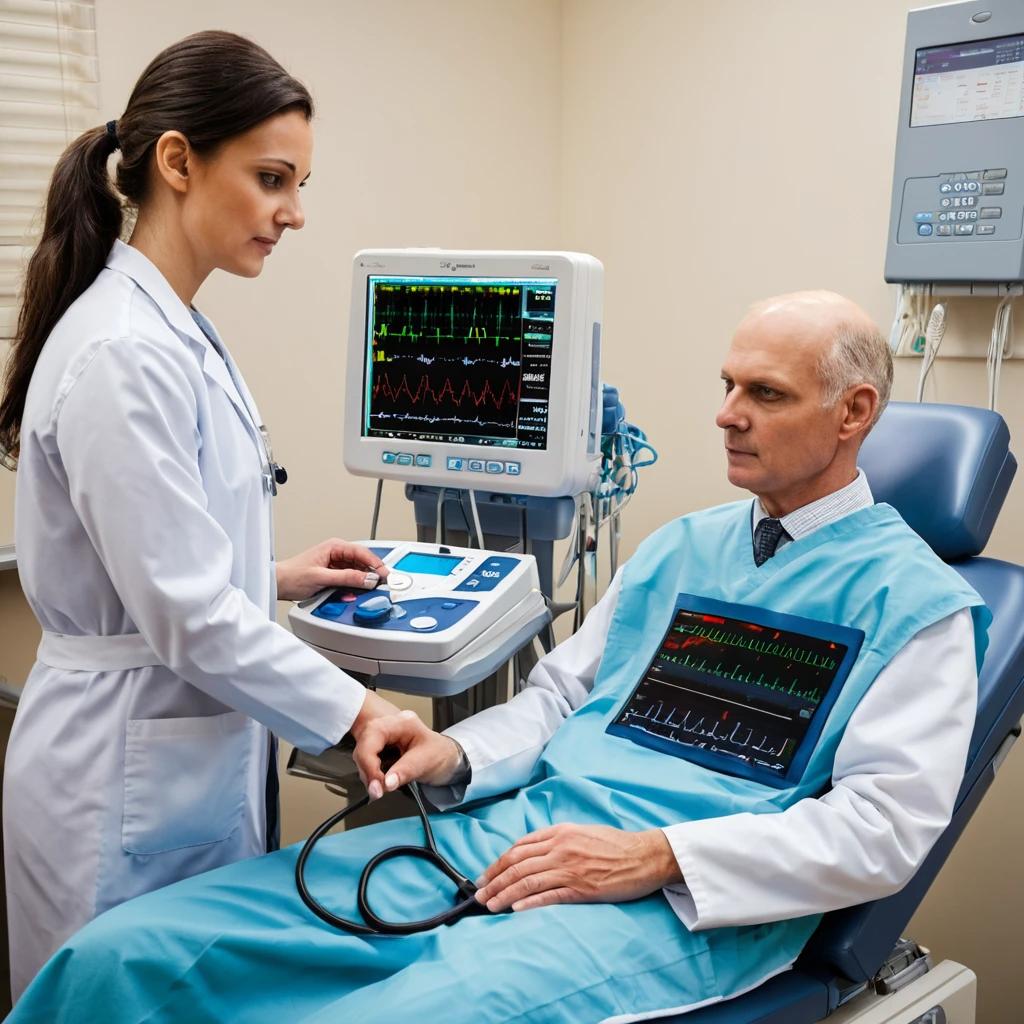- December 5, 2024
EKG Tech Jobs: A Comprehensive Guide for Aspiring Professionals

EKG Tech Jobs: A Comprehensive Guide for Aspiring Professionals
If you’re considering a career in the healthcare field, EKG tech jobs may be an excellent choice for you. EKG (electrocardiogram) technicians play a vital role in diagnosing and monitoring heart conditions by recording the electrical activity of the heart. In this article, we will explore everything you need to know about EKG tech jobs, including the role of an EKG technician, job settings, key duties, required skills, certification, and career outlook. We will also provide a checklist to help you get started on your path to becoming an EKG technician.

Role of EKG Technicians
An EKG technician operates an electrocardiograph machine to measure and record the heart’s electrical activity. These tests are crucial for doctors to detect heart conditions such as arrhythmias, heart attacks, and other cardiac issues. As an EKG technician, you will play a key role in patient care, helping healthcare providers understand and monitor their patients’ heart health.
Job Settings
EKG tech jobs can be found in various healthcare settings, such as:
- Hospitals: Working in a hospital, you’ll likely encounter a wide range of patients with different heart conditions. This is one of the most common workplaces for EKG technicians.
- Clinics and Doctor’s Offices: Many cardiologists and general practitioners have EKG machines in their offices. Here, you may assist patients on a more personal level.
- Outpatient Care Centers: These facilities offer diagnostic services, and EKG technicians may be needed to perform heart tests on patients visiting for routine check-ups.
- Long-term Care Facilities: Some nursing homes or rehabilitation centers may also require EKG technicians for regular patient monitoring.
Key Duties
As an EKG technician, your responsibilities will include:
- Preparing Patients: Explaining the procedure to patients and preparing them for the test by placing electrodes on their chest, arms, and legs.
- Operating the Equipment: Setting up and using the electrocardiogram machine to capture electrical signals from the heart.
- Recording Results: Monitoring the results during the procedure and ensuring that the readings are clear and accurate.
- Reporting Data: Sending the recorded data to physicians for further analysis and diagnosis.
- Patient Care: Assisting patients throughout the process, making them feel comfortable, and ensuring they are informed about the procedure.
Skills Needed
To succeed as an EKG technician, you need a blend of technical and interpersonal skills:
- Attention to Detail: Accuracy is crucial when recording heart rhythms and interpreting the data.
- Technical Proficiency: You should be comfortable operating EKG machines and troubleshooting minor technical issues.
- Communication Skills: You’ll be interacting with patients regularly, so strong communication is important for explaining procedures and addressing concerns.
- Knowledge of Cardiology: A basic understanding of heart anatomy and cardiac conditions will help you perform your job effectively.
Certification/Training
While some employers may hire EKG technicians with a high school diploma or equivalent, certification can significantly enhance your job prospects. Here are the steps to becoming a certified EKG technician:
- Complete a Training Program: Look for accredited EKG technician programs that teach the necessary skills, including hands-on training.
- Obtain Certification: You can become certified through organizations like the National Healthcareer Association (NHA) or the American Society of Phlebotomy Technicians (ASPT).
- Continuing Education: Stay up to date with the latest advancements in cardiology and EKG technology to maintain certification.
Work Environment
EKG technicians typically work in a clinical or hospital environment, which means they must be comfortable in fast-paced, sometimes high-stress situations. They may work long hours, including weekends and evenings, depending on the needs of the facility. The work often involves direct patient interaction, so being compassionate and patient is essential.
Career Outlook
The demand for healthcare professionals, including EKG tech jobs, is growing steadily. According to the U.S. Bureau of Labor Statistics, the employment of medical sonographers and cardiovascular technologists (a category that includes EKG technicians) is expected to grow by 14% from 2021 to 2031, which is faster than the average for other occupations.
As more people seek medical care and as heart disease remains a leading cause of illness, the need for skilled EKG technicians will continue to rise.
Salary
The salary for an EKG technician can vary based on location, experience, and education. On average, EKG technicians in the United States earn between $30,000 to $55,000 annually. However, those with more experience or advanced certifications may earn higher salaries. It’s also worth noting that working in urban areas or hospitals may offer higher pay compared to smaller clinics or outpatient centers.
Conclusion
EKG tech jobs offer a rewarding and stable career path for those interested in healthcare, particularly in the field of cardiology. By understanding the role, duties, and required skills, you can better prepare for this fulfilling profession. With a growing job market and opportunities for advancement, becoming an EKG technician can be an excellent choice for those who are passionate about helping others and working in the healthcare industry.